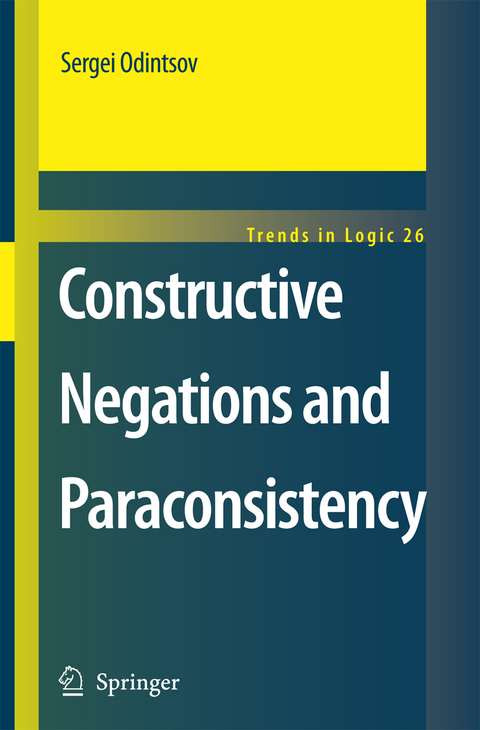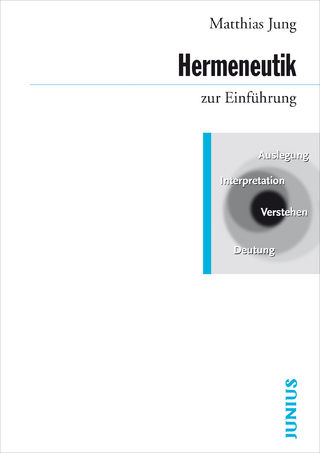
Constructive Negations and Paraconsistency
Seiten
2010
|
Softcover reprint of hardcover 1st ed. 2008
Springer (Verlag)
978-90-481-7744-8 (ISBN)
Springer (Verlag)
978-90-481-7744-8 (ISBN)
Here is an account of recent investigations into the two main concepts of negation developed in the constructive logic: the negation as reduction to absurdity, and the strong negation. These concepts are studied in the setting of paraconsistent logic.
Thetitleofthisbookmentionstheconceptsofparaconsistencyandconstr- tive logic. However, the presented material belongs to the ?eld of parac- sistency, not to constructive logic. At the level of metatheory, the classical methods are used. We will consider two concepts of negation: the ne- tion as reduction to absurdity and the strong negation. Both concepts were developed in the setting of constrictive logic, which explains our choice of the title of the book. The paraconsistent logics are those, which admit - consistent but non-trivial theories, i. e. , the logics which allow one to make inferences in a non-trivial fashion from an inconsistent set of hypotheses. Logics in which all inconsistent theories are trivial are called explosive. The indicated property of paraconsistent logics yields the possibility to apply them in di?erent situations, where we encounter phenomena relevant (to some extent) to the logical notion of inconsistency. Examples of these si- ations are (see [86]): information in a computer data base; various scienti?c theories; constitutions and other legal documents; descriptions of ?ctional (and other non-existent) objects; descriptions of counterfactual situations; etc.
The mentioned survey by G. Priest [86] may also be recommended for a ?rst acquaintance with paraconsistent logic. The study of the paracons- tency phenomenon may be based on di?erent philosophical presuppositions (see, e. g. , [87]). At this point, we emphasize only one fundamental aspect of investigations in the ?eld of paraconsistency. It was noted by D. Nelson in [65, p.
Thetitleofthisbookmentionstheconceptsofparaconsistencyandconstr- tive logic. However, the presented material belongs to the ?eld of parac- sistency, not to constructive logic. At the level of metatheory, the classical methods are used. We will consider two concepts of negation: the ne- tion as reduction to absurdity and the strong negation. Both concepts were developed in the setting of constrictive logic, which explains our choice of the title of the book. The paraconsistent logics are those, which admit - consistent but non-trivial theories, i. e. , the logics which allow one to make inferences in a non-trivial fashion from an inconsistent set of hypotheses. Logics in which all inconsistent theories are trivial are called explosive. The indicated property of paraconsistent logics yields the possibility to apply them in di?erent situations, where we encounter phenomena relevant (to some extent) to the logical notion of inconsistency. Examples of these si- ations are (see [86]): information in a computer data base; various scienti?c theories; constitutions and other legal documents; descriptions of ?ctional (and other non-existent) objects; descriptions of counterfactual situations; etc.
The mentioned survey by G. Priest [86] may also be recommended for a ?rst acquaintance with paraconsistent logic. The study of the paracons- tency phenomenon may be based on di?erent philosophical presuppositions (see, e. g. , [87]). At this point, we emphasize only one fundamental aspect of investigations in the ?eld of paraconsistency. It was noted by D. Nelson in [65, p.
Reductio ad Absurdum.- Minimal Logic. Preliminary Remarks.- Logic of Classical Refutability.- The Class of Extensions of Minimal Logic.- Adequate Algebraic Semantics for Extensions of Minimal Logic.- Negatively Equivalent Logics.- Absurdity as Unary Operator.- Strong Negation.- Semantical Study of Paraconsistent Nelson's Logic.- N4?-Lattices.- The Class of N4?-Extensions.- Conclusion.
| Erscheint lt. Verlag | 17.11.2010 |
|---|---|
| Reihe/Serie | Trends in Logic ; 26 |
| Zusatzinfo | VI, 242 p. |
| Verlagsort | Dordrecht |
| Sprache | englisch |
| Maße | 155 x 235 mm |
| Themenwelt | Geisteswissenschaften ► Philosophie ► Allgemeines / Lexika |
| Geisteswissenschaften ► Philosophie ► Logik | |
| Mathematik / Informatik ► Mathematik ► Allgemeines / Lexika | |
| Mathematik / Informatik ► Mathematik ► Logik / Mengenlehre | |
| ISBN-10 | 90-481-7744-8 / 9048177448 |
| ISBN-13 | 978-90-481-7744-8 / 9789048177448 |
| Zustand | Neuware |
| Informationen gemäß Produktsicherheitsverordnung (GPSR) | |
| Haben Sie eine Frage zum Produkt? |
Mehr entdecken
aus dem Bereich
aus dem Bereich
die letzten Jahre der Philosophie und der Beginn einer neuen …
Buch | Hardcover (2024)
Klett-Cotta (Verlag)
CHF 39,20
Konfuzianismus, Daoismus, Buddhismus
Buch | Softcover (2023)
C.H.Beck (Verlag)
CHF 25,20


